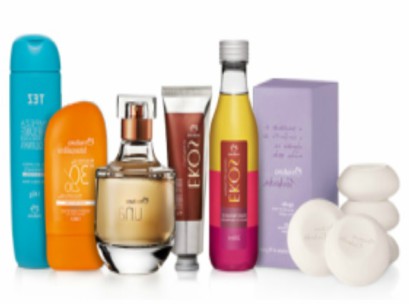The recent announcement that Avon is closing its doors in Australia after 55 years of operating here, made me reflect on direct selling and party–planning. Over the past 20 years I’ve hosted parties for everything including from Enjo cleaning products to Envy jewellery, Intimo lingerie to Body Shop and Nutrimetics. Generally I’ve used them as an annual excuse to get my girlfriends together and socialise, with some pampering of course. Even though cosmetics, personal care and wellness a
accounted for 64 per cent of global direct selling sales in 2016, according to the World Federation of Direct Selling Associations (WFDSA), categories sold via party plan or direct selling don’t always have to involve pampering. Some may recall the historic selling of vacuum cleaners door to door in the UK and the USA.
According to the website Find that Party Plan Australia, party planning categories include beauty/wellbeing/fragrance, candles & accessories, cards & scrapbooking, children & baby items, earth-friendly cleaning, fashion, handbags & shoes, home decor & manchester, jewellery, kitchen & food, wine/spirits/other drinks, and sexy gifts & adult toys.
Thermomix is a recent direct selling success story from the past few years and is indicative of the fact that typically brands sold direct aren’t ranged by the major retailers.
Of the 70-odd members of the Direct Selling Association of Australia (DSA), aside from Thermomix the most recognisable are probably Amway, Avon, Body Shop at Home, Herbalife, Isagenix, Mary Kay, and Nutrimetics. Of these, the Body Shop – more on them in a minute – is the only one ranged in retail.
Australia however, doesn’t figure in the world’s largest direct selling markets, the top five of which collectively, as at 2016, held 64 per cent of the measurable direct selling sales globally according to the WFDSA.
Those markets were, in order: USA, China, Korea, Germany, Japan, with Brazil’s ranking at sixth place worthy of note.
Enter Natura
This is where Natura comes in. According to a May 2018 article in Direct Selling News, Natura takes the seventh spot globally with sales of $3.09bn USD, beating the venerable Tupperware who ranked at 10th place [Amway, Avon and Herbalife were the top three].
Natura originally started life in 1969 in Sao Paulo as a retail shop front, but switched to direct selling in 1974.
Some thirty years later, the company listed on the Sao Paulo stock exchange in 2004 and overtook Unilever as Brazil’s number one cosmetics company.
By 2009 it claims to have had one million consultants in the field, but as recently as 2013 84 per cent of its sales were still from a flattening Brazilian market, with most of the remainder from other South American markets.
The need for international expansion to grow was part of the reasoning behind its 2012 majority stake in premium Australian cosmetics brand Aesop.
Up until 2015 Natura had a boutique in Paris and a concept store in Brazil. In 2015, the company launched its omnichannel strategy, according to Paulo Ferreira, then-VP Sales at Natura.
Whiledirect selling was to remain the main sales channel, physical stores driving brand awareness and product trial, and e-commerce via its Rede Natura digital franchisee network were expected to take complementary roles.
The 2017 acquisition of The Body Shop gives Natura both further retail and direct selling presence in multiple markets.
Natura appears to be one of the few companies crossing the direct selling and physical store boundaries.
I’ll watch with interest to see what they do with Aesop – they may choose to maintain its premium positioning by not going down the direct selling route.
At the very least I would expect them to use their technology smarts to improve the Body Shop at Home order placement process, which at the time of my last party six months ago was still fairly manual.
Norrelle Goldring has 20 years’ experience in retail, category, channel and customer strategy, marketing and research, working in and with global retailers, manufacturers and research houses.

